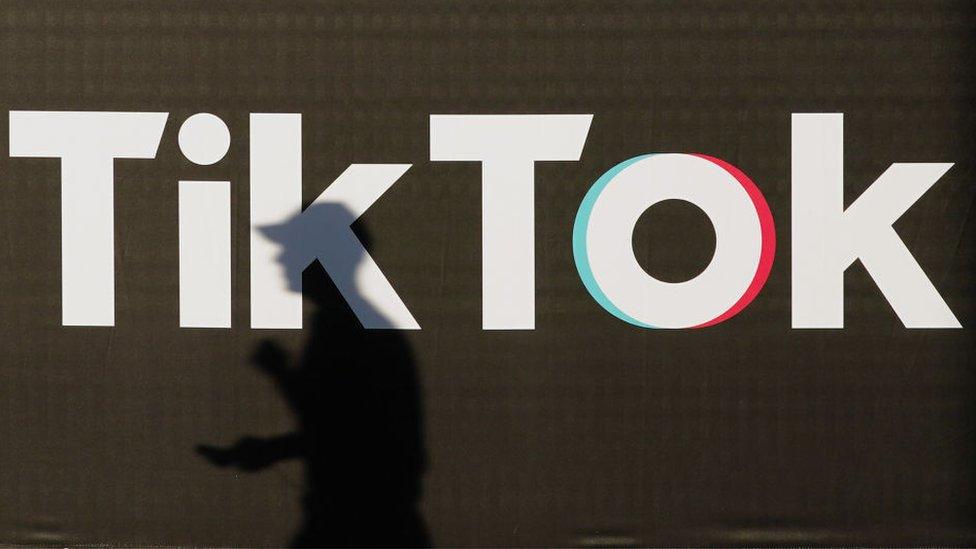TikTok hopes to help teenagers work, rest and sleep
- Published

TikTok has announced a series of changes it says are designed to protect its teenage users' wellbeing.
Users aged 13-15 will not receive push notifications from 21:00 - and for 16- and 17-year-olds, from 22:00.
This is to help them focus on work, study, relaxation and sleep, the video-sharing app says.
It is also changing its default settings so 16- and 17-year-olds will have to opt in to receive direct messages.
Privacy settings
"We want to help our younger users in particular develop positive digital habits early on," TikTok said.
A previous announcement from TikTok, external restricted direct messaging to over-16s only.
Now, for 16- and 17-year-olds, direct messaging will be set to "no-one" by default, meaning "to message others, they will need to actively switch to a different sharing option".
Existing users will be asked to to review and confirm their privacy settings the next time they send a message.
Additionally, the company says, before they can post their first TikTok, under-16s will now be asked to choose to whom to make their videos visible:
their followers
only friends
just themselves
The head of online child safety at the National Society for the Prevention of Cruelty to Children, Andy Burrows, welcomed the new measures, saying TikTok was showing "industry leadership" and the move would reduce opportunities for offenders to groom children.
But he pointed to regulation that he said was behind new safety features announced by several tech giants in recent weeks.
For example, Google announced ways to remove images of children from image search results and changes to its YouTube Kids product. Apple, meanwhile, is introducing new ways to detect child sexual abuse material and to warn parents if their children receive or send sexually explicit material.
"The raft of safety announcements we have seen in recent weeks have been driven by the Age Appropriate Design Code coming into force next month and shows the positive impact regulation has on children's safety," Mr Burrows said.
Related topics
- Published10 August 2021

- Published5 August 2021
